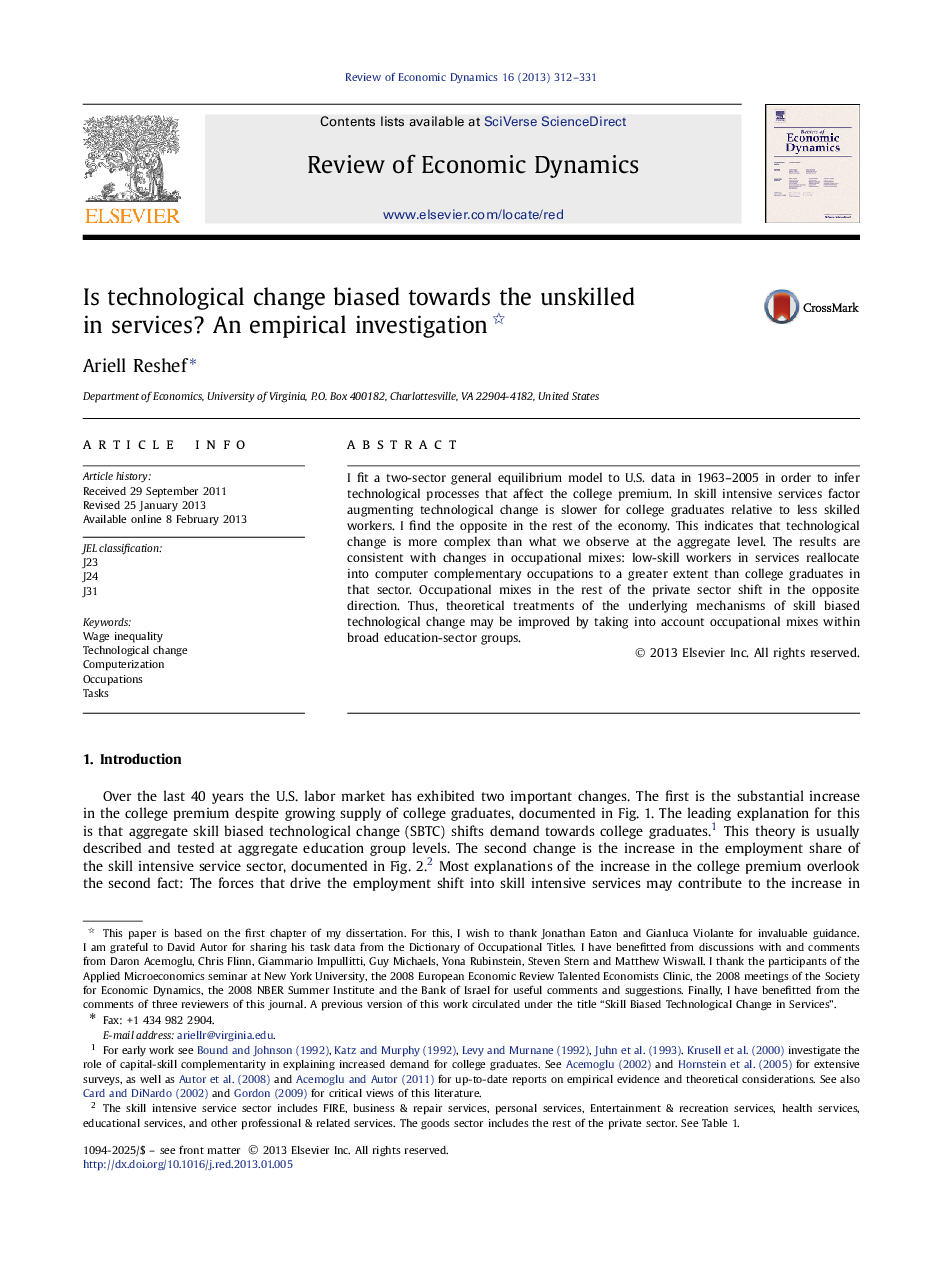| Article ID | Journal | Published Year | Pages | File Type |
|---|---|---|---|---|
| 986352 | Review of Economic Dynamics | 2013 | 20 Pages |
I fit a two-sector general equilibrium model to U.S. data in 1963–2005 in order to infer technological processes that affect the college premium. In skill intensive services factor augmenting technological change is slower for college graduates relative to less skilled workers. I find the opposite in the rest of the economy. This indicates that technological change is more complex than what we observe at the aggregate level. The results are consistent with changes in occupational mixes: low-skill workers in services reallocate into computer complementary occupations to a greater extent than college graduates in that sector. Occupational mixes in the rest of the private sector shift in the opposite direction. Thus, theoretical treatments of the underlying mechanisms of skill biased technological change may be improved by taking into account occupational mixes within broad education-sector groups.
